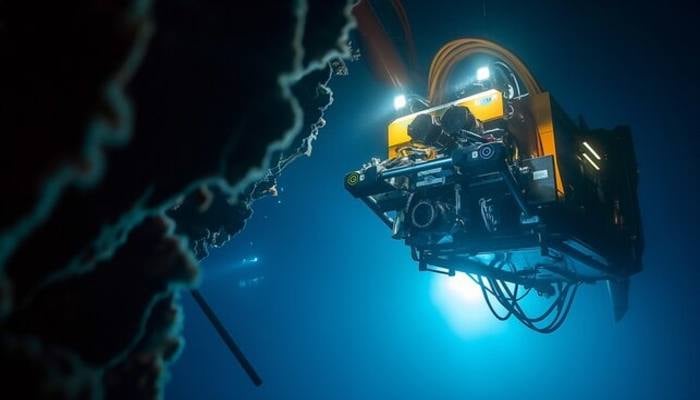
An undated image. — Adobe Stock
In a landmark stride at the intersection of oceanic exploration and artificial intelligence (AI), a collaborative team led by Chinese scientists launched a deep-sea exploration AI model named DePTH-GPT this week.
China's DePTH-GPT is part of an international scientific initiative aimed at better understanding and governing the deep ocean.
This innovative model integrates advanced AI technologies, including deep learning, large language models, computer vision, and knowledge reasoning, to analyse diverse data types such as video footage, topography, hydrodynamics, sediment, and bioacoustics.
DePTH-GPT marks a huge leap into deep-sea research, setting itself apart from traditional qualitative analysis with a more intelligent, predictive approach.
The AI model is reported to have successfully established an intelligent cognitive system for deep-sea environments, specifically targeting a seamount and a hydrothermal vent field, as reported by the Second Institute of Oceanography under the Ministry of Natural Resources.
It should be noted that this model is a product of the Digital DEPTH project, which focuses on deep-sea habitats and operates under the United Nations Decade of Ocean Science for Sustainable Development.
In future, DePTH-GPT will be made accessible to global research institutions and international organisations to facilitate the development of intelligent cognitive systems across various deep-sea habitats.
The initiative is believed to greatly contribute to the sustainable management and conservation of oceanic ecosystems.
















